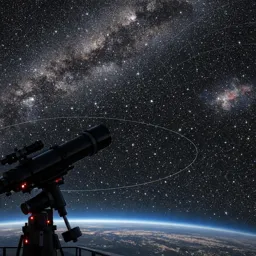What Is Space Exploration?
Space exploration is the ongoing discovery and investigation of celestial bodies beyond our planet Earth. It involves sending spacecraft, satellites, and probes into space to gather information about the universe around us. From observing distant galaxies to landing rovers on Mars, space exploration captures our curiosity and drives technological innovation.
Why Do We Explore Space?
- Scientific Discovery: Space exploration helps scientists learn about the origins of the universe, stars, and planets.
- Technological Advancement: Building spacecraft and instruments leads to the development of new technologies that often benefit life on Earth.
- Inspiration and Curiosity: Exploring the unknown inspires generations to dream, ask questions, and seek answers beyond our world.
- Search for Life: By exploring other planets, scientists hope to find signs of life or conditions suitable for life beyond Earth.
Key Milestones in Space Exploration
Some important achievements in space exploration include:
- Launching the first artificial satellite, Sputnik 1.
- Sending the first human into space.
- Landing astronauts on the Moon.
- Sending robotic probes to other planets.
- Developing powerful telescopes to observe the farthest reaches of the universe.
How Can You Get Involved?
There are many ways to learn about and participate in the excitement of space exploration. Here are a few ideas:
- Follow space agency missions (such as NASA, ESA, and others).
- Join astronomy clubs to observe the night sky.
- Take online courses about astronomy and space science.
- Read books and watch documentaries on space exploration.
Conclusion
Space exploration is a dynamic field that invites us to look up and wonder. Whether you dream of becoming an astronaut or simply love stargazing on clear nights, the universe is full of mysteries waiting to be discovered.




















